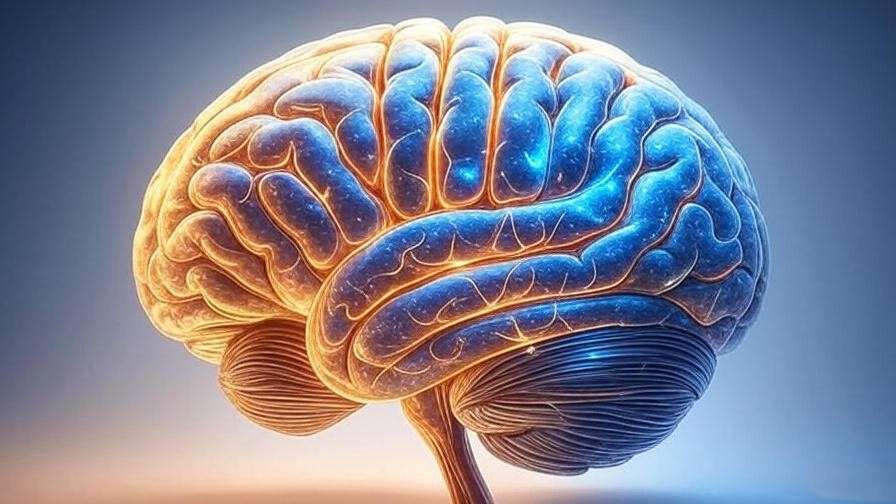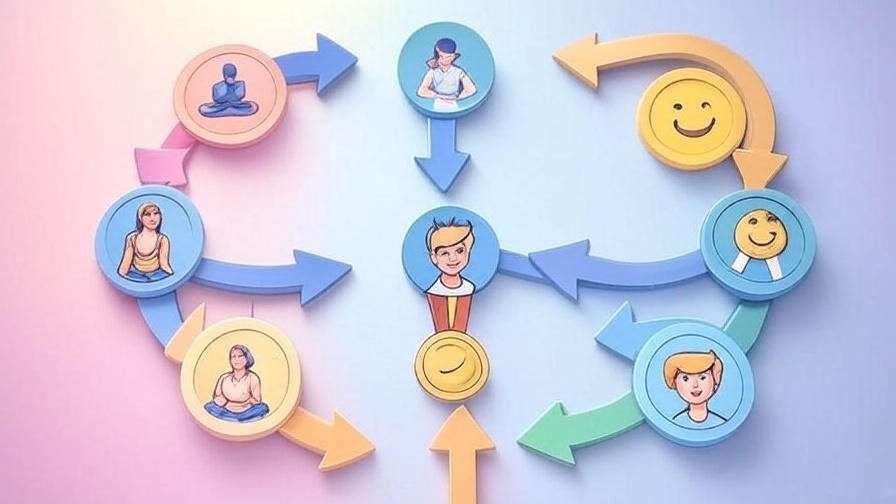Imagine starting your day with a clear mind, effortlessly tackling tasks without succumbing to distractions, and ending it with a deep sense of fulfillment. For many, this feels like a distant dream, drowned out by endless notifications, stress, and a lack of discipline. But what if the secret to unlocking this reality lies in two powerful practices: meditation and willpower? These tools can transform your daily focus and pave the way for lasting happiness. Backed by science, meditation strengthens your mind’s ability to stay present, while willpower fuels the discipline to achieve your goals. In this comprehensive guide, we’ll explore how these practices work together to enhance mental clarity, boost resilience, and foster holistic well-being, offering practical strategies to integrate them into your life.
Understanding Meditation and Willpower
What Is Meditation?

Meditation is a mindfulness practice that trains your brain to focus, cultivate awareness, and achieve a state of mental calm. Whether it’s mindfulness meditation, where you focus on your breath, or transcendental meditation, which involves repeating a mantra, the goal is to anchor your attention in the present moment. Research from Harvard Medical School shows that regular meditation increases gray matter in the prefrontal cortex, the brain region responsible for attention and decision-making, while reducing activity in the amygdala, which governs stress responses. This makes meditation a powerful tool for enhancing focus and emotional regulation, key components of holistic well-being.
What Is Willpower?
Willpower is your ability to resist short-term temptations in pursuit of long-term goals. Think of it as the mental muscle that helps you say no to a second slice of cake or stick to a workout routine. Psychologist Roy Baumeister’s ego depletion theory suggests willpower is a finite resource that depletes with use, but newer research, published in Perspectives on Psychological Science, argues it can be strengthened through practice. Willpower is the backbone of discipline, enabling you to stay focused, make better decisions, and achieve meaningful outcomes that contribute to happiness.
The Connection Between Meditation and Willpower

Meditation and willpower are deeply intertwined. Meditation enhances self-awareness, helping you recognize impulses before acting on them, which strengthens your willpower. A 2013 study in the Journal of Neuroscience found that mindfulness meditation increases connectivity in brain areas linked to self-control, such as the anterior cingulate cortex. Dr. Kelly McGonigal, a renowned psychologist, explains, “Meditation trains your brain to pause before reacting, giving you the mental space to choose actions aligned with your goals.” By combining these practices, you create a powerful synergy that boosts focus, resilience, and overall well-being.
Why Meditation and Willpower Are Essential for Daily Focus
The Modern Challenge of Distraction
In today’s digital age, maintaining focus is harder than ever. A 2015 Microsoft study found that the average human attention span has dropped to just eight seconds—shorter than that of a goldfish. Constant notifications, social media, and multitasking overload our brains, leaving us stressed and unproductive. This lack of focus not only hampers productivity but also erodes happiness, as we struggle to complete meaningful tasks. Meditation and willpower offer a solution by training your mind to filter distractions and stay on track.
How Meditation Enhances Focus
Meditation is like a gym for your attention. Practices like breath-focused meditation train you to anchor your mind to a single point, reducing mental clutter. A 2018 study from the University of California, Los Angeles, showed that just eight weeks of mindfulness meditation improved participants’ attention spans by 20%. Take Sarah, a 34-year-old graphic designer, who struggled with procrastination. After committing to 10 minutes of daily mindfulness meditation, she noticed a significant improvement in her ability to stay focused during work, completing projects faster and with greater satisfaction.
Willpower as the Foundation of Sustained Focus
Willpower acts as the gatekeeper of focus, helping you resist distractions like checking your phone or binge-watching a show. When your willpower is strong, you can prioritize tasks and maintain momentum. However, willpower can wane, especially under stress. To counter this, try the Pomodoro technique: work in focused 25-minute intervals with short breaks to recharge. Setting micro-goals, like completing one task before lunch, also preserves willpower, ensuring sustained focus throughout the day.
The Science Behind Meditation, Willpower, and Happiness
Meditation’s Impact on Emotional Well-Being
Meditation doesn’t just sharpen focus—it also nurtures emotional health. By reducing cortisol (the stress hormone) and boosting serotonin and dopamine (feel-good neurotransmitters), meditation creates a calmer, happier state of mind. A 2020 Yale study on mindfulness-based stress reduction found that participants reported a 30% decrease in anxiety after eight weeks of practice. This emotional stability is crucial for holistic well-being, as it allows you to approach challenges with clarity and optimism.
Willpower’s Role in Goal Achievement
Willpower is the engine behind achieving goals that lead to happiness. Whether it’s sticking to a healthy diet, exercising regularly, or pursuing a passion project, willpower ensures consistency. The famous Marshmallow Test, conducted by Walter Mischel in the 1970s, showed that children who delayed gratification (a hallmark of willpower) achieved better life outcomes, including higher academic success and emotional stability. By building willpower, you create a foundation for long-term success and fulfillment.
The Happiness Feedback Loop

Meditation and willpower form a virtuous cycle: meditation strengthens willpower, which fuels goal achievement, leading to happiness, which further motivates mindfulness practice. Picture it like a wheel: each turn reinforces the others. A 2021 study in Frontiers in Psychology found that individuals who combined mindfulness meditation with goal-setting exercises reported higher life satisfaction than those using either practice alone. This feedback loop is a cornerstone of lasting happiness and aligns perfectly with the pursuit of holistic well-being.
Practical Strategies to Build Meditation and Willpower
Starting a Meditation Practice
Getting started with meditation is easier than you think. Begin by choosing a quiet space and a time when you’re least likely to be interrupted—mornings work well for many. Start with just five minutes a day, focusing on your breath or using a guided meditation from apps like Headspace or Calm. To build consistency, try habit stacking: pair meditation with an existing routine, like brushing your teeth. Track your progress with a journal or app to stay motivated. Over time, increase your session length to 10-20 minutes for deeper benefits.
Strengthening Willpower Through Daily Habits
Building willpower is like training a muscle—it grows stronger with consistent effort. Try these strategies:
- Set SMART Goals: Make goals Specific, Measurable, Achievable, Relevant, and Time-bound to stay focused.
- Use the Pomodoro Technique: Work in 25-minute bursts to preserve mental energy.
- Journal Daily: Reflect on your successes and challenges to reinforce self-discipline.
Nutrition and sleep also play a role. Poor sleep can deplete willpower, so prioritize 7-8 hours of quality rest (explore our sleep articles for tips). Eating balanced meals with complex carbs and protein supports sustained energy for self-control.
Combining Meditation and Willpower for Maximum Impact
To maximize results, integrate meditation and willpower into your daily routine. For example, meditate for five minutes before tackling a challenging task to boost focus and self-control. A sample routine might look like this:
- 7:00 AM: 5-minute mindfulness meditation.
- 7:15 AM: Set three priority tasks for the day.
- 8:00 AM: Use Pomodoro to work on the first task.
- 12:00 PM: Take a mindful walk to recharge willpower.
John, a 42-year-old teacher, adopted this approach and reported completing his grading 30% faster while feeling less stressed. Download our free willpower-building checklist to create your own routine.
Overcoming Common Challenges
“I Don’t Have Time to Meditate”
One of the most common barriers to starting a meditation practice is the perception of not having enough time. With packed schedules, it’s easy to feel overwhelmed. However, meditation doesn’t require hours of commitment. Micro-meditations—sessions as short as 1-2 minutes—can be highly effective. Try focusing on your breath while waiting for your coffee to brew or practicing mindful awareness during daily tasks like washing dishes. Research from the Journal of Positive Psychology (2022) shows that even brief mindfulness moments improve focus and reduce stress. By integrating meditation into your routine, you’ll save time through enhanced productivity, making it a worthwhile investment.
“My Willpower Fades by Midday”

Willpower often feels strongest in the morning but can dwindle as the day progresses, especially under stress or fatigue. This phenomenon, known as ego depletion, can derail your focus. To recharge, try short power naps (10-20 minutes) to restore mental energy, as supported by a 2019 study in Sleep Medicine. Eating small, healthy snacks like nuts or fruit can also stabilize blood sugar, which fuels willpower. Prioritize high-willpower tasks early in the day when your mental reserves are fullest, and break larger projects into smaller, manageable chunks to avoid burnout.
“I Struggle to Stay Consistent”
Consistency is a common hurdle for both meditation and willpower-building. Motivation can wane, especially when results aren’t immediate. To stay on track, find an accountability partner—someone to check in with weekly—or join a meditation community, such as online forums like Reddit’s r/Mindfulness or local mindfulness groups. Habit tracking apps like Habitica or a simple journal can also reinforce progress. Dr. Amishi Jha, a neuroscientist specializing in attention, suggests, “Small, consistent actions compound over time, rewiring your brain for discipline and resilience.” Celebrate small wins, like meditating for three days straight, to build momentum.
Long-Term Benefits for Holistic Well-Being
Improved Mental Clarity and Decision-Making
Over time, meditation and willpower enhance your cognitive abilities, leading to sharper mental clarity and better decision-making. A 2020 study in NeuroImage found that long-term meditators (practicing for five years or more) showed increased gray matter density in the prefrontal cortex, improving executive functions like planning and problem-solving. Willpower supports this by helping you stick to decisions aligned with your goals, such as choosing a healthy meal over fast food. Together, these practices create a mental environment where you can think clearly and act decisively, boosting productivity and confidence.
Emotional Resilience and Stress Management
Meditation and willpower are powerful tools for building emotional resilience. Meditation reduces the brain’s reactivity to stress, as shown in a 2021 study from Psychosomatic Medicine, which found that mindfulness practitioners had lower cortisol responses to stressors. Willpower complements this by enabling you to stick to stress-reducing habits, like regular exercise or journaling. Dr. Tara Brach, a renowned mindfulness teacher, notes, “By cultivating mindfulness and discipline, you create an inner refuge that helps you navigate life’s challenges with grace.” This resilience fosters a sense of calm and control, essential for holistic well-being.
A Path to Lasting Happiness
The ultimate reward of combining meditation and willpower is lasting happiness. By fostering focus, emotional stability, and goal achievement, these practices align with the core principles of holistic well-being. A 2023 study in The Journal of Happiness Studies found that individuals who practiced mindfulness and self-discipline reported higher life satisfaction and lower rates of depression. Whether it’s strengthening relationships, advancing your career, or simply finding joy in daily routines, meditation and willpower create a foundation for a fulfilling life. They empower you to live intentionally, aligning your actions with your deepest values.
FAQs
What’s the best meditation style for building willpower?
Mindfulness meditation is particularly effective for strengthening willpower, as it enhances self-awareness and impulse control. Studies, like one from Frontiers in Human Neuroscience (2020), show that mindfulness training improves self-regulation by strengthening neural connections in the anterior cingulate cortex.
How long does it take to see results from meditation?
Most people notice benefits like improved focus and reduced stress within 2-4 weeks of daily practice, according to a 2018 meta-analysis in Neuroscience & Biobehavioral Reviews. Consistency is key—start with 5-10 minutes daily and gradually increase.
Can meditation replace willpower?
No, meditation doesn’t replace willpower but enhances it by improving self-awareness and emotional regulation. It equips you to make conscious choices, which strengthens your ability to exercise willpower effectively.
What if I’m too stressed to meditate?
If stress makes meditation feel daunting, start with short, guided sessions or simple breathing exercises. Apps like Insight Timer offer 1-2 minute stress-relief meditations. Over time, these practices reduce stress, making meditation easier.
Conclusion
Meditation and willpower are transformative tools that unlock sharper focus, greater resilience, and lasting happiness. By training your mind to stay present and your will to stay disciplined, you can overcome distractions, achieve your goals, and cultivate holistic well-being. Start small—try a 5-minute meditation today or set one priority task to tackle with focus. Explore our related articles on sleep, mindfulness, and happiness for more tips, or download our free meditation starter guide to kickstart your journey. With consistent practice, you’ll not only transform your daily focus but also build a life of purpose and joy.













